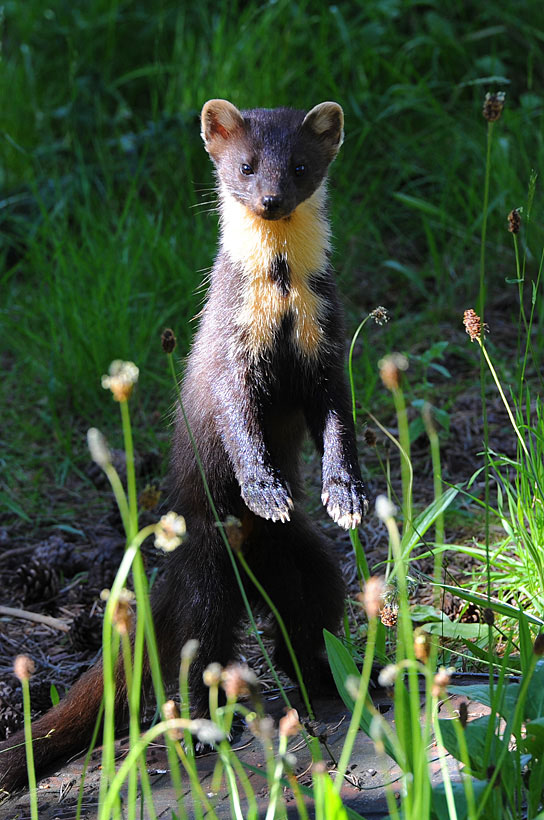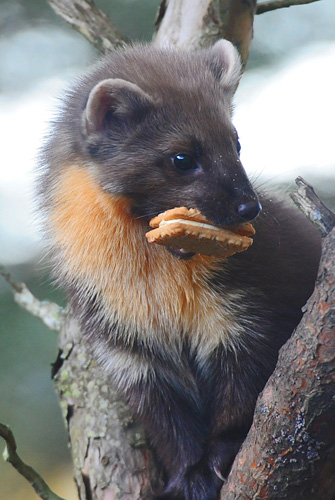

The photos below have been taken over nearly 20 years from several generations of two different families of Pine Martens who habitually reside in the forest on the west shore of Loch Shieldaig |
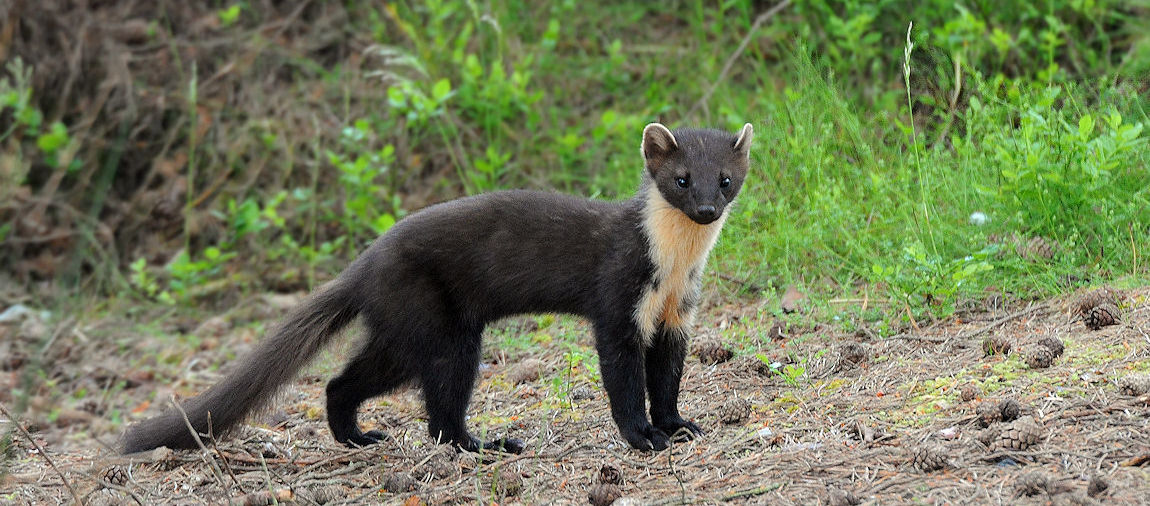
The
Pine Marten can often be seen in the Torridon area of the Highlands
of Scotland. The
adult is the size of a small domestic cat; it is slender with dense, chocolate-brown fur and a long bushy tail. It has an orange cream coloured
bib on the throat. The male measures on average 68 cm from nose to
tip of tail. The female is slightly smaller. It is a member of the
weasel family.
They
move quickly along the ground, rarely emerging into open spaces. They
are expert at climbing trees. They are mostly likely to be seen in
the evening or at night, although they do come out during the daytime
in summer months. They have an alert and timid presence, but are very inquisitive.
|
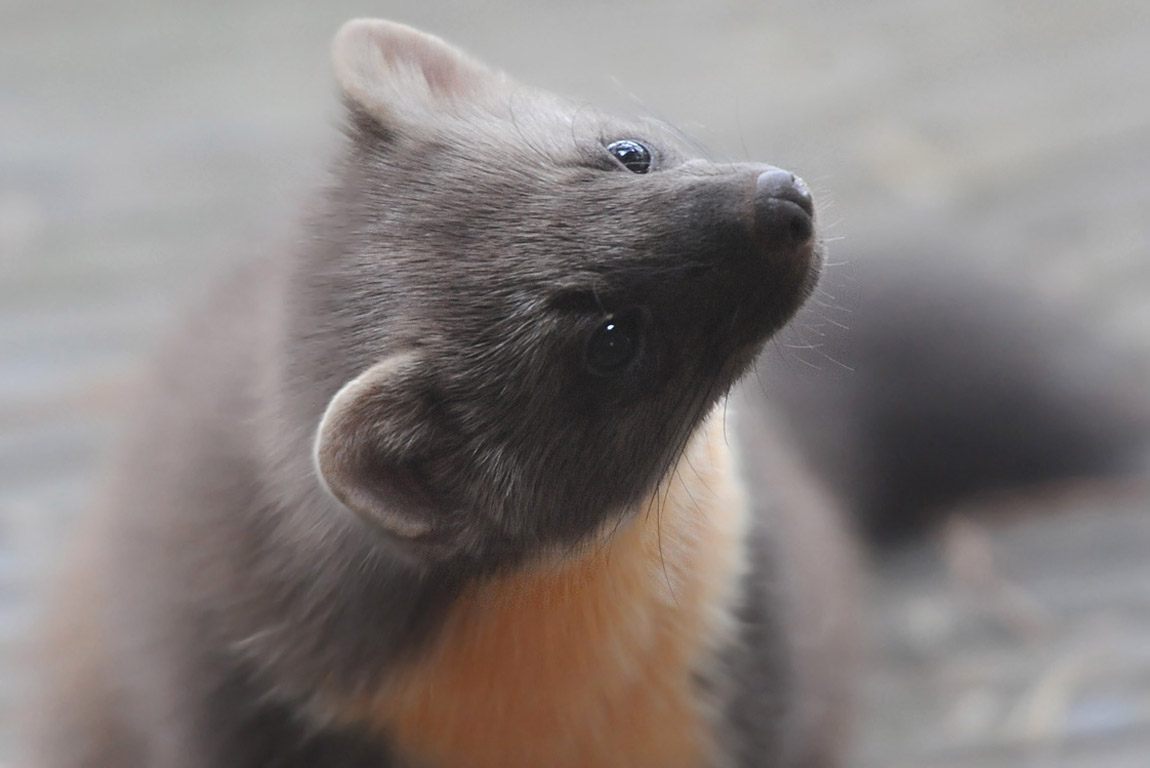
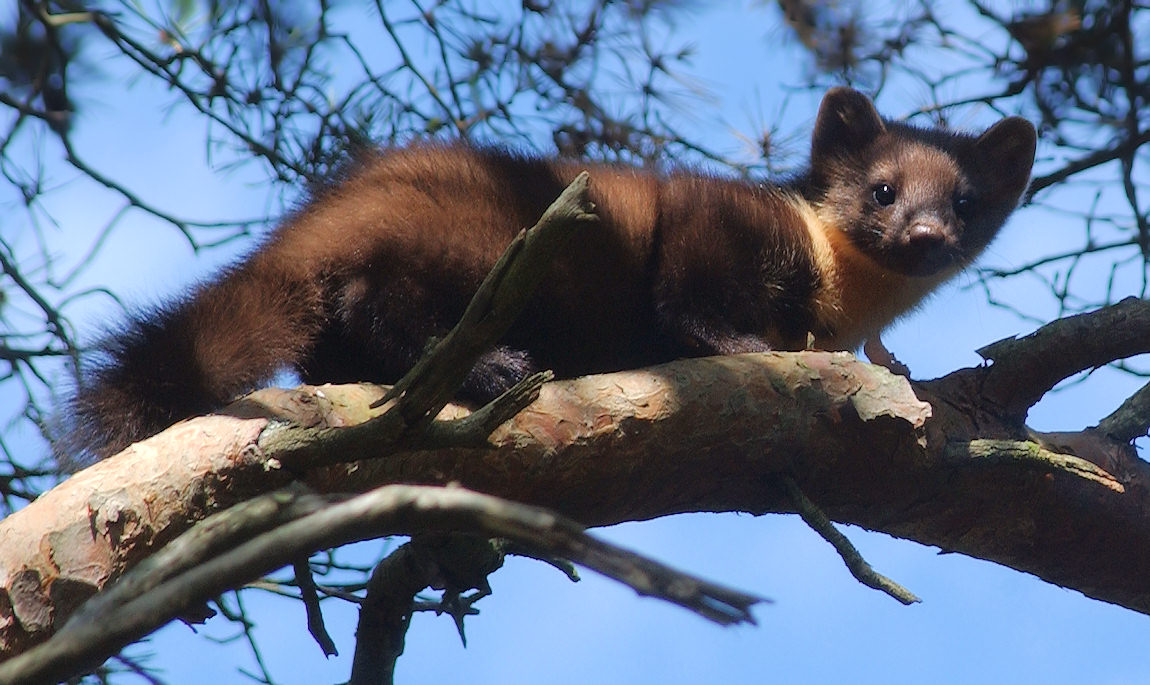
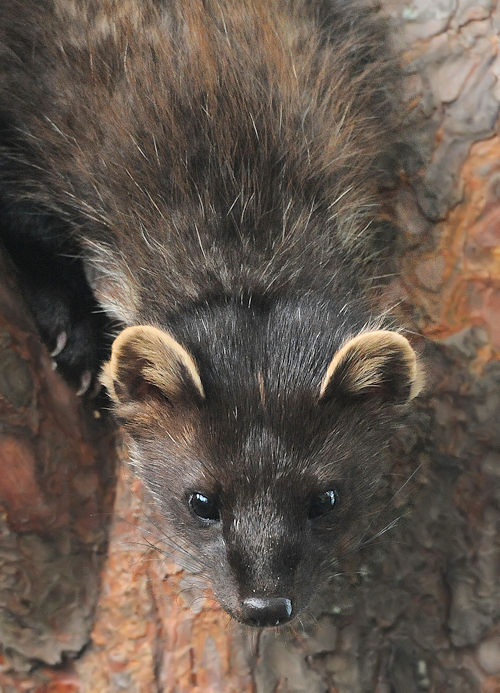 |
Although Pine Martens live in the Scottish Highlands and Grampian, and occasionally in southern Scotland, there may still be isolated individuals in Northumberland and North Yorkshire in England, although these are almost certainly extinct.
Most pine martens prefer woodland, mainly coniferous. Some can be found on rocky moorland and hillsides or cliffs covered with scrub. They live in holes in trees, old squirrel dreys and even old birds' nests. If it falls from a tree, its body twists to land safely on all fours from as high as 20 metres
Pine Martens hunt in trees and on the ground. They like to roam in broad-leaved or conifer woodlands, and the destruction of these is a threat to the species. They find most of their food on the ground, and they hunt for small mammals, birds, insects, fungi, berries, birds' eggs and carrion.
Contrary to some opinions, they do not eat significant quantities of squirrels, red or grey.
|
The young (kits) spend at least six weeks in the den before they venture out, and the family stays together until they are six months old.
They may live to 11 years old, but the normal lifespan is is three to four years.
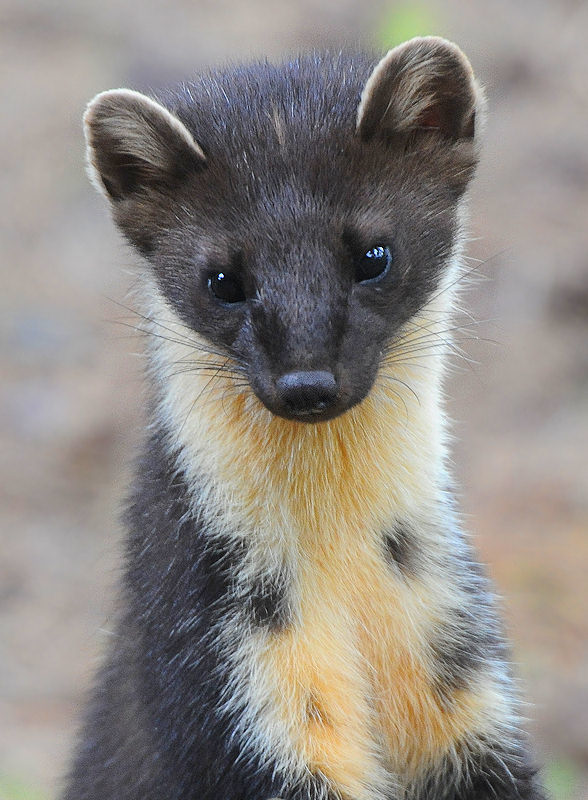
Young Pine Marten
Pine
Martens avoid areas away from woodland or scrub, probably because
other predators can catch and kill them in the
open. Martens have territories that vary in size according to the
availability of food. For males, the territory is about 10-25 square
kilometres, and for females, about 5 - 15 kilometres. They are not
aggressively territorial, some animals' territories overlapping those
of others. Sometimes, however, they mark their trail with faeces ("scats").
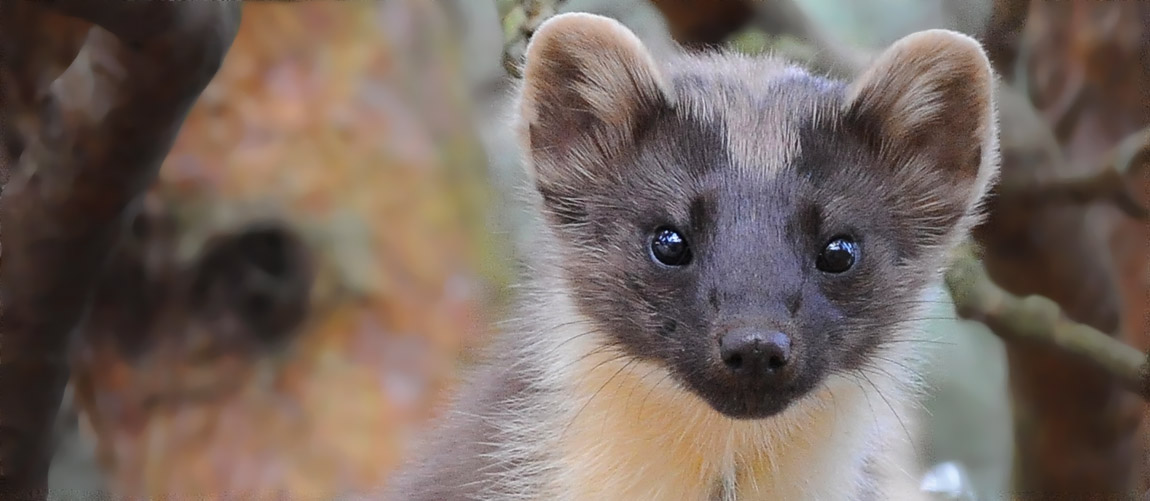
Even in places where they are at their most numerous, Pine Martens
are thin on the ground compared with other carnivores like foxes,
stoats and badgers.

Pine
Martens can be very playful and curious in their behaviour and can
become quite trusting of humans.
They breed only once a year. Mating takes place in July or
August, but the female's pregnancy does not begin until January. (This
delayed implantation also occurs in the badger.)
A litter of about
three babies is born in late March or April. At birth, the young are
blind and covered in a coat of yellow-white hair which changes to
grey, and then to brown as they mature.
The babies spend at least
six weeks in the den before they venture out, and the family stays
together until they are six months old.
|
|
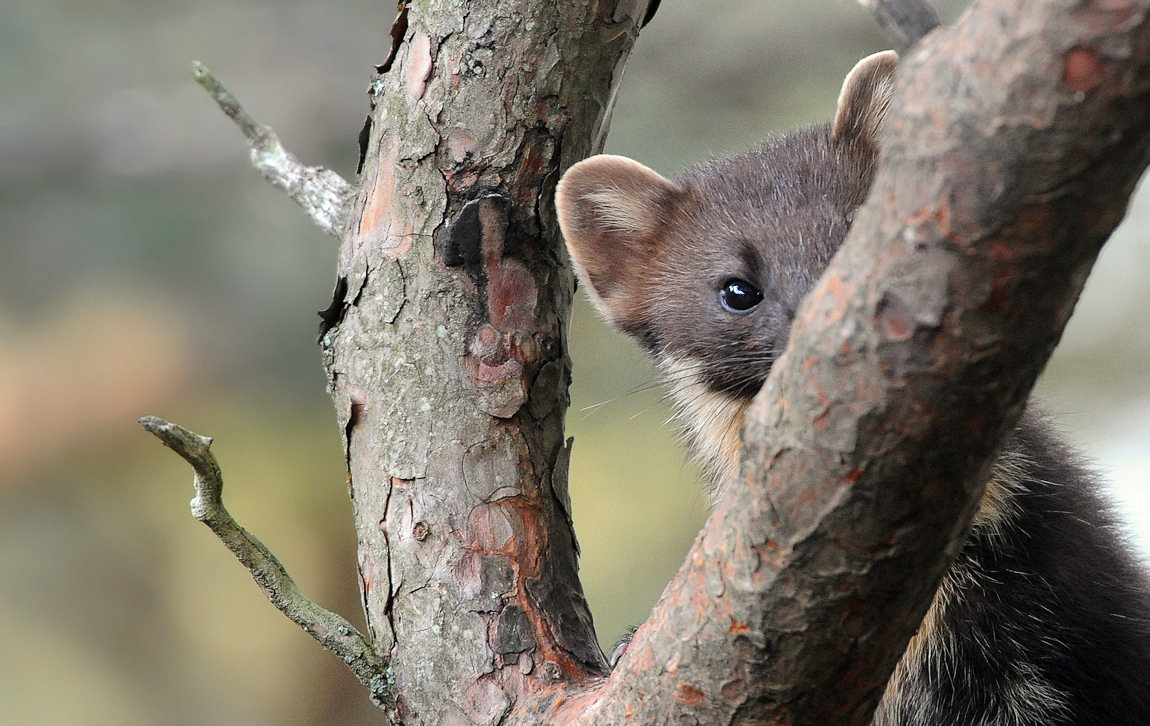
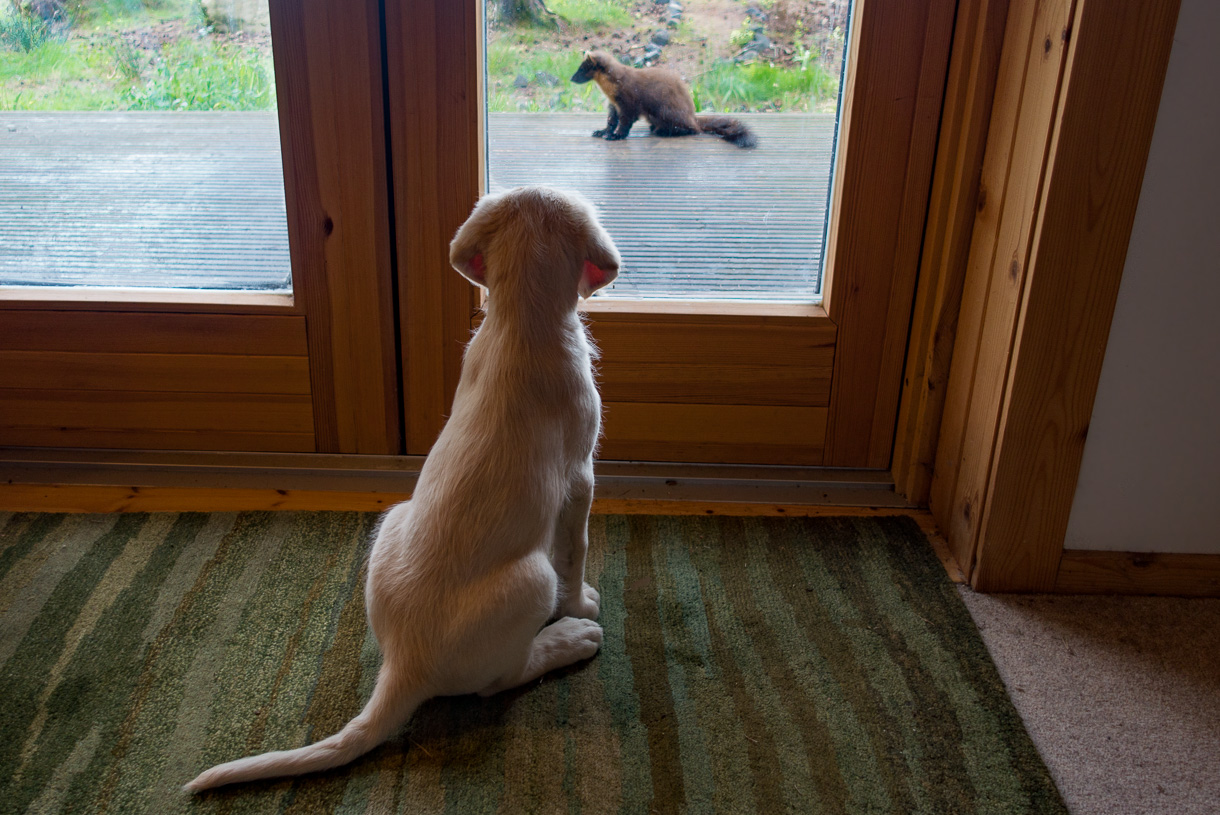
|









